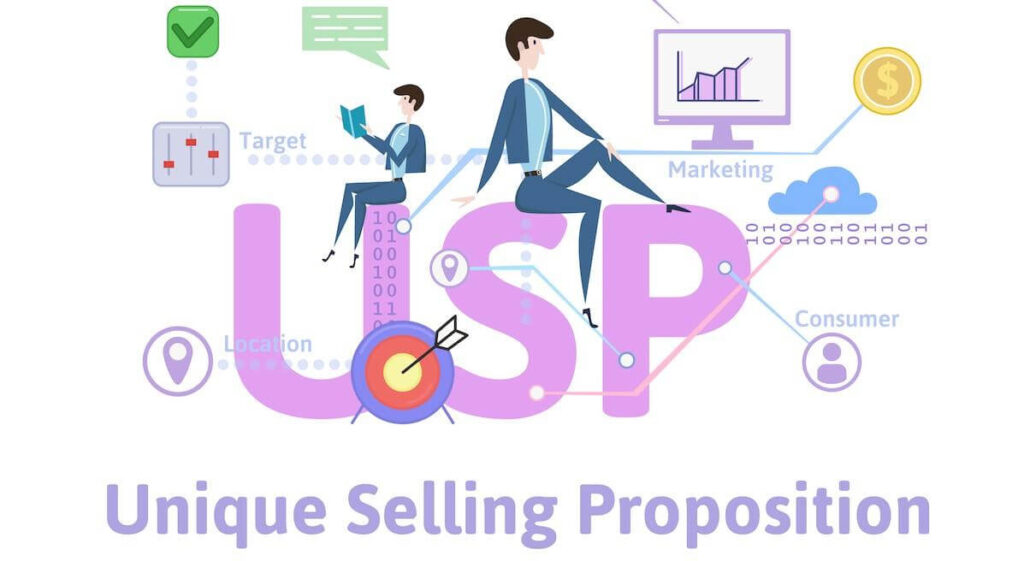
So you’ve decided to start a small business. Congratulations! While creating a small business can be daunting, there are many things you can do to set yourself up for success. This blog post will outline some essential marketing tips that will help you get your business off the ground.
Marketing is vital for any small business; without a marketing strategy, it will be challenging to attract customers and make sales. So what are you waiting for? Read on for our top tips!
Small Business Marketing Tips
Define your target market
The first step in any marketing strategy is to define your target market. Who are you trying to reach? What are their demographics (age, gender, location, etc.)? Once you know your target market, you can start crafting messaging that resonates with them. The first step in any marketing strategy is to define your target market. Once you understand your target market well, you can start tailoring your marketing messages to appeal to them.
Defining your target market will also indicate whether you should concentrate on online or offline marketing strategies. For example, a local ice cream shop may be perfectly positioned to promote itself through social media and by implementing strategic marketing tactics, such as placing a welcoming inflatable ice cream cone at the door to increase foot traffic and attract attention. Promotional inflatable products are widely used to attract attention and generate interest. These inflatable structures come in a variety of shapes and sizes and can be customized to meet the specific needs of any business or brand. On the other hand, a tech start-up may be better suited to an online-only marketing approach. This allows the start-up to reach its target audience quickly and efficiently, and to take advantage of the vast array of digital marketing tools and platforms available today.
Create a marketing plan
A marketing plan is a roadmap that outlines your marketing goals and strategies. It should include details on how you plan to reach your target market, what channels you’ll use, and how much money you’ll allocate to each initiative. Having a solid marketing plan will help you stay organized and on track.
This document will outline your goals, strategies, and tactics for marketing your business. Without a marketing plan, it won’t be easy to track your progress and measure your results. A marketing plan is essential for any small business. This document will outline your goals, strategies, and tactics for marketing your business.
Identify your unique selling proposition
What makes your business different from the competition? What do you offer that is unique and appealing to customers? It is your unique selling proposition (USP), and it is essential to communicate this to potential customers. What makes your business different from the competition? Why should customers choose you over your competitors? What are your core values? Once you know what makes your business unique, communicate that to your audience.
Choose the proper channels to reach your target market
You can use many different marketing channels to get your target market. Choosing the right ones is essential, as each track will have a different impact on your business. Some of the most popular channels include:
Social media
Social media platforms are a great way to connect with potential customers. You can create profiles for your business and share content that will interest your target market.
Paid advertising
Paid advertising can be a great way to quickly reach a large number of people. You can use platforms like Google AdWords or Facebook Ads to target customers based on their interests and demographics.
SEO
SEO is the practice of optimizing your website for search engines. By optimizing your site, you can improve your ranking in search engine results pages, bringing more traffic to your website.
When starting a small business, you might not immediately think about SEO, but it plays a crucial role in your marketing strategy. Search engine optimization, or SEO, enhances your website to improve visibility when people search for products or services related to your business on search engines like Google.
If you’re new to SEO, consider collaborating with a keyword research agency. These experts can help you identify high-volume and low-competition keywords relevant to your business. By incorporating these keywords into your website’s content, you can rank higher on search engine results pages (SERPs), increasing your online visibility.
One strategy a keyword research agency might suggest is focusing on local SEO. This is particularly important for small businesses. By targeting keywords specific to your local area, you can attract customers from your community and compete more effectively with larger businesses.
Content creation is another SEO strategy that can yield significant benefits. By regularly creating high-quality, informative content that includes your target keywords, you can demonstrate your expertise and provide value to potential customers, improving your SEO ranking over time.
SEO also involves:
- Improve your website’s technical aspects, such as increasing your site’s loading speed.
- Ensuring it’s mobile-friendly.
- Creating an intuitive user interface.
- Prioritize website security.
- Optimize images and videos.
- Use SEO-friendly URLs.
- Eliminate broken links
A keyword research agency can help you optimize these aspects of your website and enhance your overall SEO strategy.
Remember, SEO is a long-term strategy, and results won’t come overnight. But with persistence, consistency, and the proper guidance from a keyword research agency, your small business can achieve great results.
Email marketing
Email marketing is a great way to stay in touch with your customers. You can send them content that interests them, and you can also use email marketing to promote special offers and discounts.
Content marketing
Content marketing is creating and sharing content that is relevant to your target audience. You can attract new customers and build trust with existing customers by creating high-quality content.
Research your competition
 A strong branding strategy is vital for any small business. Your brand should be instant. To differentiate your business from the competition, you need to know what they offer. To succeed in business, you need to know your competition.
A strong branding strategy is vital for any small business. Your brand should be instant. To differentiate your business from the competition, you need to know what they offer. To succeed in business, you need to know your competition.
What are they doing that’s working? What can you do differently? Knowing your competition’s strengths and weaknesses will help you develop a marketing strategy that stands out. By doing your research, you can determine how to set yourself apart and attract customers. You also have to find out what you can do to overcome the competition.
Create a brand identity
A strong brand identity will help people remember your business and what it stands for. Your brand identity should be consistent across all channels, from your website to your social media profiles to your marketing materials. When people see your logo or hear your name, they should instantly know who you are and what you offer.
Your brand should be immediately recognizable and reflect your company’s values and mission. When customers see your branding, they should know to expect only the best service from your business.
Sell on Instagram to put your product on the map and get instant engagement among millennials. Instagram is an excellent platform for small businesses to showcase their products and services. It’s a visual medium, perfect for companies that sell physical products or offer creative services.
You can use Instagram to post photos of your products, behind-the-scenes footage of your business, and customer testimonials.
Twitter is great for customer service and for promoting blog content. You can use Facebook to drive website traffic and sell products and services. Utilize Google AdWords to create targeted advertisements that will reach your ideal customers.
When it comes to marketing a small business, Facebook is a powerful tool. You can use Facebook to share photos and videos of your products and services, blog posts, and promotional offers. You can also use Facebook to create targeted advertisements to reach your ideal customers.
Implement and track your results
 Once you’ve put together a marketing strategy, it’s essential to track your results. It will help you determine what is and isn’t working and will help you make adjustments to your plan as needed. Use analytics tools to track website traffic, social media followers, and email open rates.
Once you’ve put together a marketing strategy, it’s essential to track your results. It will help you determine what is and isn’t working and will help you make adjustments to your plan as needed. Use analytics tools to track website traffic, social media followers, and email open rates.
If a particular tactic isn’t working, try something else. Keep experimenting until you find what works best for your business.
Evaluate and adjust as needed
As your small business grows, you’ll likely need to change your marketing strategy. For example, if you see a lot of success with a particular tactic, you may want to invest more resources.
Alternatively, if you do not see the results you want, you may need to abandon that tactic and try something new. The key is to evaluate your marketing efforts and make changes constantly. Tools like business strategy software can help you predict whether your initiatives will perform as expected. It also tells you if your strategies are affecting your KPIs so you can fix performance problems and achieve your strategic goals.
Conclusion: Small businesses have to be scrappy and creative when marketing, as they often don’t have the same resources as bigger businesses. But with a bit of ingenuity and hard work, you can create a marketing strategy that will help your business succeed. We hope these tips have been helpful!










